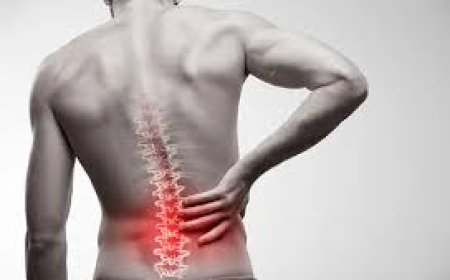High Cholesterol Medication and Heart Disease Prevention: What You Should Know
Discover how high cholesterol medication helps prevent heart disease by lowering LDL, stabilizing plaques, and reducing inflammation.
Heart disease remains the leading cause of death worldwide, and high cholesterol is a major contributor. Fortunately, high cholesterol medication has proven to be one of the most powerful tools for reducing cardiovascular risk. This blog dives into how these medications play a critical role in preventing heart attacks, strokes, and related complications.
The Link Between Cholesterol and Heart Disease
When LDL (bad) cholesterol levels rise, they contribute to plaque buildup in arteriesa process known as atherosclerosis. Over time, this narrows the arteries and limits blood flow, increasing the risk of heart attack, stroke, and peripheral artery disease.
How High Cholesterol Medication Helps
-
Lowers LDL Cholesterol
-
Medications like statins and PCSK9 inhibitors significantly reduce LDL levels, which slows or even reverses plaque formation.
-
-
Reduces Inflammation
-
Some medications also reduce systemic inflammation, further decreasing heart disease risk.
-
-
Stabilizes Arterial Plaques
-
Stable plaques are less likely to rupture, lowering the chance of sudden heart attacks.
-
-
Improves Overall Lipid Profile
-
Many medications also boost HDL (good cholesterol) and lower triglycerides, offering broader heart protection.
-
Who Benefits Most from Medication?
-
People with high LDL or total cholesterol
-
Those with a family history of heart disease
-
Individuals with diabetes or high blood pressure
-
Anyone who has already experienced a cardiac event
Statins and Cardiovascular Outcomes
-
Reduce risk of heart attack by up to 40%
-
Lower stroke risk by 30%
-
Decrease need for heart procedures (e.g., stents, bypass)
Other Medications for Heart Protection
-
PCSK9 Inhibitors Ideal for statin-intolerant patients or those needing major LDL reduction
-
Ezetimibe Blocks cholesterol absorption in the intestine
-
Fibrates Useful for patients with high triglycerides
-
Niacin May help raise HDL, though less commonly used today
Timing Matters
The earlier you begin high cholesterol medication, the more you reduce long-term risk. Studies show that early intervention leads to greater protection and fewer events over time.
Complementary Role of Lifestyle
Medication isnt a replacement for healthy living. Combine medication with:
-
A balanced, plant-based diet
-
Regular physical activity
-
Smoking cessation
-
Weight management
These habits further enhance the effectiveness of your treatment.
Monitoring Progress
Doctors track your progress through regular blood tests (lipid panels) and sometimes imaging tests to check for plaque buildup.
Common Concerns Addressed
-
Can I stop my medication if my cholesterol improves?
-
Possibly, under doctor supervisionbut most people benefit from long-term use.
-
-
Will I have side effects?
-
Most people tolerate medications well. Options are available if side effects arise.
-
-
Is it too late to start?
-
No. Starting even after a cardiac event can prevent future complications.
-
Key Takeaways
-
High cholesterol medication is a cornerstone of heart disease prevention.
-
Works by lowering LDL, reducing inflammation, and stabilizing plaques.
-
Best used alongside lifestyle changes for maximum benefit.
-
Safe and effective for long-term cardiovascular protection.
FAQs About High Cholesterol Medication and Heart Disease
Q1. Can medication really prevent heart attacks? Yes. Statins and similar drugs can lower the risk by up to 40%.
Q2. What if I dont have symptoms? You can still be at risk. Medication is often used preventively in high-risk patients.
Q3. How soon will I see results? LDL levels typically drop within 46 weeks. Cardiovascular protection increases over time.
Q4. Can I just rely on diet and supplements? Sometimes, but medication is often necessary for those with high cardiovascular risk.
Q5. Do these medications protect against strokes too? Yes. They significantly reduce the risk of ischemic strokes caused by arterial plaque.




































